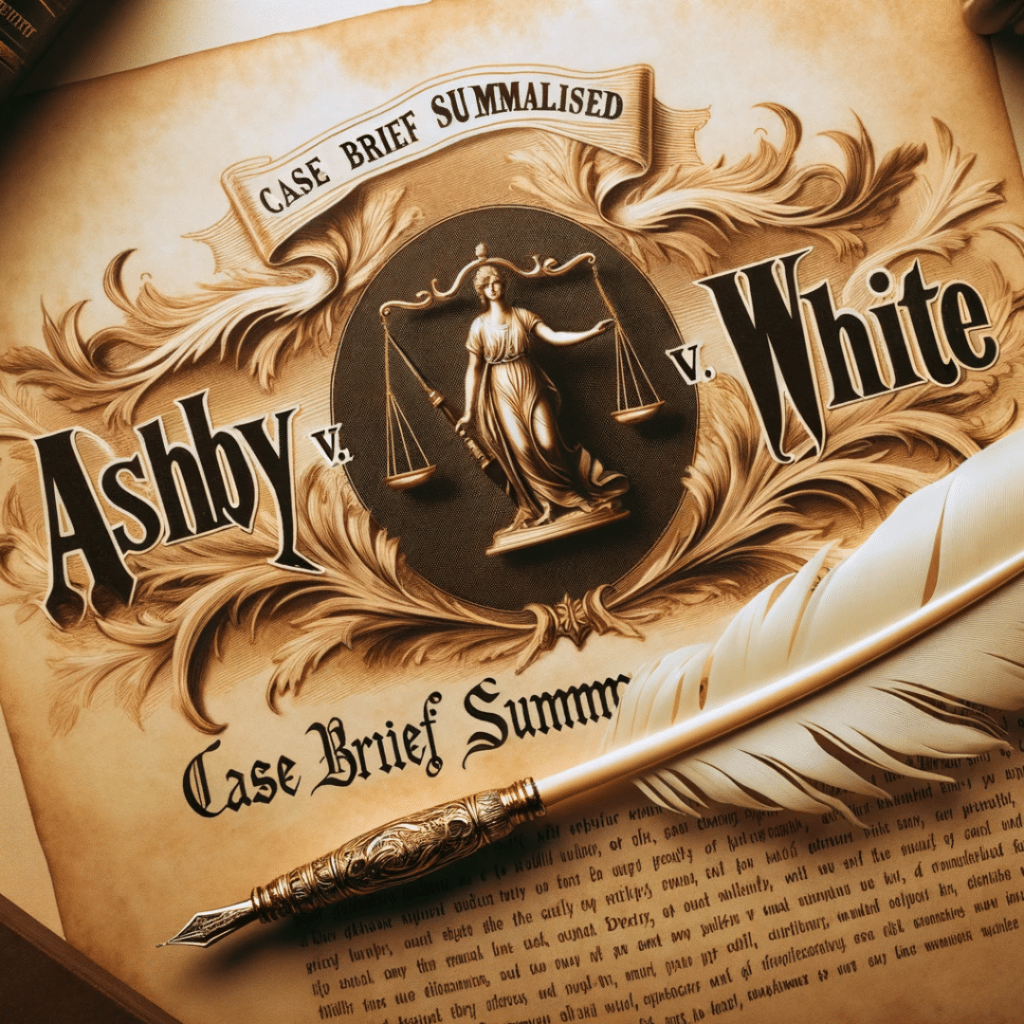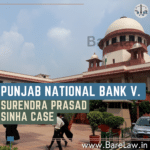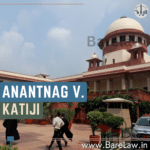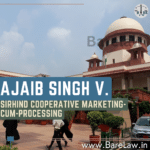
CASE NAME- ASHBY V. WHITE
CITATIONS – (1703) 92 ER 126
Introduction
The case states the importance of fundamental rights vested by UK Constitutional Law.
The issue in the case is related to civil law and the rights that a person holds to claim his civil rights.
The two major rights involved in the case are the Right to Vote and also the right that an elected official does not have.
This case is important because the right to vote is the right of every citizen and is necessary for the nation too. The decision of the case was given by three judges.
Facts: the plaintiff, Mr. Ashby filed the case after being aggrieved by the actions of a police constable.
Ashby was a cobbler and was stopped from casting his vote in the polling booth.
As the plaintiff was stopped from voting in an election as the constable stated that he was not a settled inhabitant of the state.
However, the plaintiff was a legitimate citizen of the constituency and also was a qualified voter.
This case later came to be known as Election Case.
The case was not only constrained to a single person but, attracted the focus of the public as well as the government.
After being offended by the action of others, the civil suit was bought by the plaintiff to claim the damages that he suffered from the actions of others.
The issue raised: Whether a person can claim rights over damages suffered by him due to the action of another person?
Legal Maxim: Injuria Sine Damnum
This means that if a person has not suffered any personal loss in any form but, has suffered through a violation of legal,
he can bring the suit. Legal rights are also important as other private rights.
The contention of Plaintiff: Plaintiff contended that the candidate he wanted to vote for, had won the elections.
However, the plaintiff was not ready to take back his claims. He claimed substantial damages that were caused to him by the action of the defendant.
He contended that he was stopped from casting his vote and that has violated his fundamental rights.
This should be taken into account and the defendant must be held liable for causing the violation of the legal right of the plaintiff.
The contention of the defendant: the defendant contended that the candidate of the plaintiff’s choice has won the election.
Due to this, no damage has been caused to the plaintiff. Therefore, the plaintiff cannot claim his damages.
The case should be disposed of as the cause for which the plaintiff had filed the case has been automatically fulfilled by the votes of other citizens.
Also
The decision of the House of Commons: In the House of Commons, Ashby was held guilty of the breach of parliamentary privilege.
This was done by carrying out his action at common law.
Therefore, the plaintiff was held liable and not the defendant. Aggrieved by the decision. Plaintiff filed an appeal.
The decision of the appellate court: the court here held that no personal damage was caused to the plaintiff.
However, the legal right to vote of the plaintiff was infringed by the action of the returning officer who stopped him from casting his vote.
The disallowance from casting vote was held to be a civil wrong. Also, the principle of injuria sine damnum prevailed and hence defendant was held liable for committing a civil wrong.
It was stated that when a man is given a right, a remedy comes along with it. it a person has been injured through his rights and enjoyment of it, it cannot be said that he does not have any remedy to claim it.
Ratio decidendi: Every man has a right to vote. The financial status of a person cannot decide a person’s right to vote.
A person’s right to vote has been stated in the laws as well as the constitution. It cannot be taken away by any official due to illegitimate reasons.
The right of voting does not vary from any other right and has to be given equal importance. When there is a right, there is a remedy.
Though no monetary charges existed, charges for violating a legal right were present.
Conclusion
The case states that it is not always necessary to have monetary damage. Here, legal right has been given importance.
However, the same was not stated by the House of Commons, the appeal had given importance to the voting right of the plaintiff.
Hence, the principle of injuria sine damnum prevailed in the case and added to the importance of voting rights.
Not only voting rights, if any of the legal rights of a person gets violated, but he can also claim damage as per the abovementioned principle.
Also, Read – https://www.casebriefs.com/blog/law/torts/torts-keyed-to-prosser/civil-rights/ashby-v-white/









